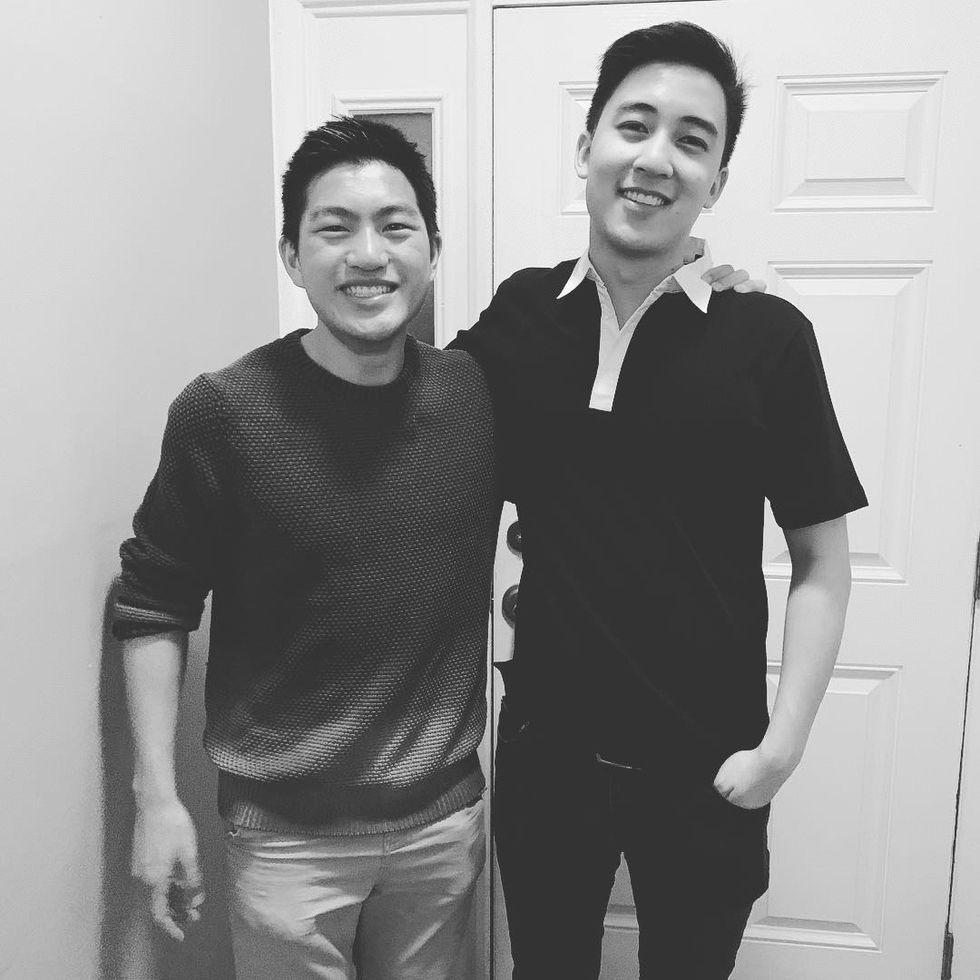I'm graduating this week. Emory has taught me more than any other four years I've spent anywhere else, and what they say is true: the most valuable lessons are those you learn outside the classroom.
That isn't to say what I learned in the classroom isn't insignificant. Clearly, a big part of my career and professional life is predicated on what I learned about pyruvate dehydrogenase and the enzymes driving the Citric Acid Cycle in biochemistry or the aldol addition mechanism behind the Michael Addition, or even the writers and literary legends driving movements like realism, modernism, and postmodernism. Yes, my love for Robert Frost's expressions of choice and the fact of the anxiety, uncertainty, and complexity of the human condition have extended to my personal life, with his poems "Stopping By Woods On A Snowy Evening" and "Desert Places" resonating with many of the personal problems I faced in my everyday life.
But, again, the most valuable lessons are the ones I learned outside the classroom. I learned from Emory that hope and joy cannot exist without suffering and brokenness, and my life experiences have felt the former, the latter, and everything in between during my time at Emory. I learned what it meant to be loved and unconditionally supported by an entire community, to know the family that God intended for me to. I also knew what it meant to realize I can't live, go on, and cope with my problems on my own, that I needed a savior in God and God's gifts of unconditional love. It saved my life to have realized and experienced that love.
And that love has extended to the pain that Emory caused me. The sleepless nights dealing with society's rush to judgment, misunderstandings, and self-interest that didn't want to deal with me once I became a liability a liability that made me realize, on a level I never knew before, that even your closest friends can be cruel, self-serving, and unsympathetic in a way that will break you down as nothing has ever broken you down before. I learned that when they say, "they were never your friends anyway" just simply isn't true because I can't feel this much pain and suffering if some of my closest friends that turned their backs on me weren't close with me in the first place.
"Know that people love you, and they will always love you, Ryan, even if it's from a distance," one friend told me the other day.
Emory taught me how to love. And I do know this, and I think in about six months or a year, I'll look back on my life struggles at Emory and realize, even now, that I still love those friends that turned their backs on me, that I still love them at a distance, and I always will. I learned what it meant to observe that I'm more resilient than I ever imagined, and that the people I love are too. In emotional warfare and in a perpetual, traumatic state of in extremis, everyone copes and grieves with what is lost very differently. In those times it has become so important to me to not give condemnation, but to reserve it. The greatest gift in my faith is the gift of mercy, to be with those that are suffering. And in my situation, that meant offering mercy to those that everyone told me I shouldn't.
I learned that the truth doesn't really matter. For everyone's personal reasons, they will believe what they want to believe. That's not always a bad thing, but rather an adaptive mechanism that has been our means of survival in all of our species' existence. From a Utilitarian perspective, the greatest good for the whole and group is more important than the rights and dignity of the individual. But I experienced what it meant to have those rights and dignity deprived in a manner I didn't think possible, and not even by people who sought to persecute and forsake me, but by people I love. By my friends. I learned what it meant for the same person that refused to even acknowledge my greeting in public to express their utter sympathy and support in private, from a distance, to shed tears to let me know how sorry they were for how much I was suffering. Emory taught me that life is simply just like this, that things will not always be fair, that things sometimes won't make sense, that there's nothing you can do to stop the condemnation, persecution, and shaming, that sometimes the best thing you can do is wait it out and never give up and keep standing.
Emory tested me in a way that I never thought I could ever be tested. It exposed to me that even enough life isn't always good, God always is, and the extent to which you show your love for God is how you love others, especially those that forsake and persecute you. Through God, Emory taught me that life is always complicated, and always never easy, and that's for good because God's plan is a far superior path than my own plan, and the plan that God has taught me is one of love. I thought I was a loving person before, but God taught me what it meant to love when it's not in your self-interest, to love when everything tells you that you shouldn't.
As an education, my school taught me everything: Emory taught me how to love.




 Energetic dance performance under the spotlight.
Energetic dance performance under the spotlight. Taylor Swift in a purple coat, captivating the crowd on stage.
Taylor Swift in a purple coat, captivating the crowd on stage. Taylor Swift shines on stage in a sparkling outfit and boots.
Taylor Swift shines on stage in a sparkling outfit and boots. Taylor Swift and Phoebe Bridgers sharing a joyful duet on stage.
Taylor Swift and Phoebe Bridgers sharing a joyful duet on stage.













